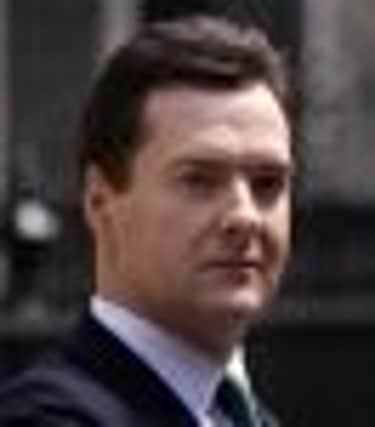Anna Burnside: Nothing like a Dame to expose follyof George Osborne


I spent the morning with her as she toured the lab and met the scientists who will use the £1 million imaging suite she has donated to the Patrick Wild Centre, which researches autism spectrum diseases.
She’s the second philanthropist who has made a big impression. Working in Dunfermline in the 1980s, I marvelled at the legacy Andrew Carnegie left to the town. Before getting a job in Fife I had barely heard of the guy. Suddenly I was using the university-class reference section in his library, peching up and down his swimming pool in my lunchbreak, eating my sandwiches among the peacocks in the 76-acre park he gave to the town. Driving through the rest of the district, covering community council meetings or doorstepping grieving relatives, it was clear that Cowdenbeath, Rosyth and Inverkeithing badly needed a similarly enriching endowment. Lochgelly is still, to my knowledge, a peacock-free zone.
Advertisement
Hide AdAdvertisement
Hide AdCarnegie and his Santa Claus beard were long gone by the time I arrived in Pittencrieff Street. Actually meeting Dame Steve, feeling her excitement at the possibilities her money can bring, was very moving. I never got a chance to tell Andrew C how much I enjoyed meandering through the Glen and what a huge help the library was to the editor of an under-resourced newspaper.
The researchers at the Patrick Wild Centre can shake Dame Steve’s hand, show her their work. Then she in turn can tell the politicians why philanthropists, who fund the things that governments can’t or won’t, are an important part of the social fabric. Not tax dodgers.
Dame Steve is very clear on the distinct role of philanthropic investment: to take risks and break new ground. Her personal focus is autism, until recently a Cinderella research subject. When her only son, Giles, born in 1963, was diagnosed as severely autistic, the options the family were offered were brutal and, eventually, unacceptable. Horrified by his treatment in an institution, she ended up founding a care home in her home town. Giles was the first resident. When she talks about the way the Patrick Wild scientists have genetically altered a mouse to make it autistic, and then change it back to being a normal, cheery, squeaking mouse, and the possibilities this suggests, her voice quivers.
Since retiring from the IT business where she made her fortune and dedicating her life to disbursing it, Dame Steve has given away £60m. But she started small. Her first donations, she told me, hurt. It was write the cheque or buy a new car. She wrote the cheque.
Now the government is casting aspersions at the motives of the Dame Steves of this world. Instead of encouraging the rich to do something productive with their money, they have wound up a group of – you would think – their natural supporters by changing the tax on charitable donations. Too many millionaires are, apparently, using charitable donations to shady charities who do little with the cash. So, as of next year the amount a person can give without paying tax will be capped at £50,000, or a quarter of their income, whichever is higher. Donations above that figure will come from their taxed income.
It’s hard to figure out in what way anyone thought this was a good idea. We haven’t heard much about the big society recently, but surely philanthropy is one of its key tenets, selflessly redistributing money (and often time and energy as well) for the greater good. Dame Steve does not just write the Patrick Wild Centre, or anybody else, a cheque. The idea horrifies her. She gets involved, meets the families who come for treatment, shares their successes and failures, as well as using her formidable address book to make contacts and create new alliances.
By giving away so much cash that she pays no tax, Dame Steve – and J K Rowling, Tom Hunter and the other philanthropists who find the idea of sitting like King Midas, counting their millions, repulsive – chooses where her money goes. Perhaps this is what is ripping Osborne’s knitting, the idea that autistic children, or MS patients, or Scottish schoolchildren who think an entrepreneur is a guy who sells single fags out of his ice-cream van, should feel the warm glow of financial investment when he has chasms in his budget. Philanthropists, by filling in the government’s gaps and taking the risks it can’t afford, shows up the politicians. That can be seen as a threat.
If Osborne is really as horrified – and surprised – about the extent of tax avoidance as he makes out, then that is a good thing. He should, with all urgency, make it stop. After he has shown us the details of these lazy offshore charitable trusts, into which the super-rich allegedly pour their untaxed cash, and which then do very little with it, then he should concrete over that loophole. Until then, he should drop the wearisome gesture politics. One of the Conservative party’s aims, in government, was to make us a more charitable nation. How on earth does making a counter-productive example out of a group which acts out of altruism, instead of spending its millions on holidays and handbags, help with that?